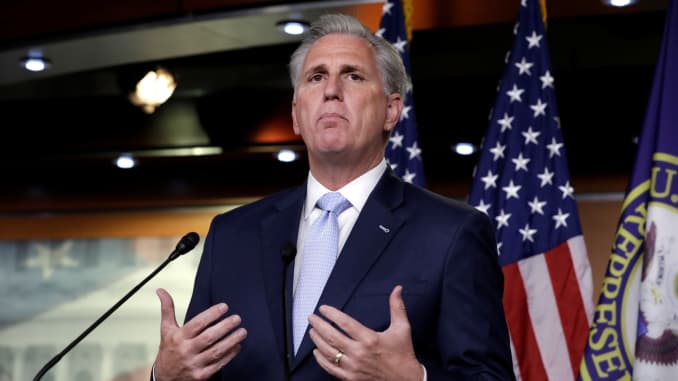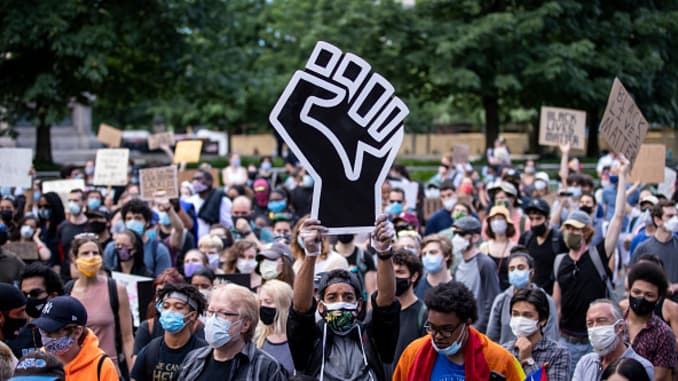- House Minority Leader Kevin McCarthy on Monday partly blamed spikes in the number of coronavirus cases nationwide on demonstrations in support of Black Lives Matter.
- It’s not yet clear how the protests have impacted the spread of the coronavirus. But one study from the National Bureau of Economic Research has found no evidence that the protests have led to a spike in the number of coronavirus cases.






No comments:
Post a Comment